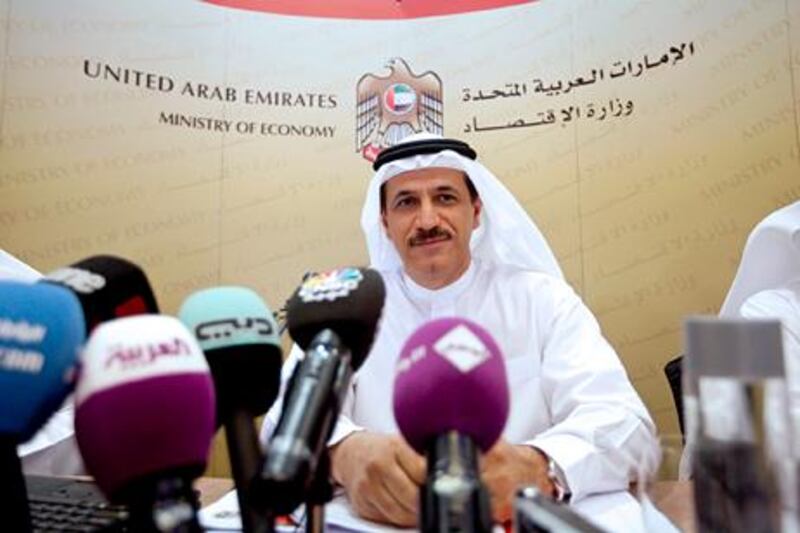Economic growth is likely to slide to about 3 per cent this year as the UAE feels the strain from a weaker global outlook, the Minister of Economy said yesterday.
Sultan Al Mansouri warned that slower growth in China and the euro-zone debt crisis could both hurt the UAE through lower trade.
“The UAE is the most integrated Arab economy in the global economy and the world economy is still not yet moving [and] coming out from the economic crisis they are in, so this will definitely affect some sectors of the UAE economy,” he said.
Mr Al Mansouri was speaking at the launch of an official report showing the economy grew by 4.2 per cent last year, its highest rate in five years. Growth would likely moderate this year, he said. But Mr Al Mansouri said he still felt optimistic about the year ahead as strong oil prices helped bring in more liquidity to invest in the economy.
He expressed concern, however, about slowing growth in the world’s second-biggest economy. In the latest sign of China’s cooling growth, data released last week showed its manufacturing sector weakened last month.
“After India, China is the second-biggest trading partner with the UAE, hence any kind of fluctuation with Chinese exports in terms of pricing or so on could have an effect.”
The UAE needs to be equally wary of the unfolding euro-zone debt crisis, he said.
But he said the country’s relationship with Germany, the single currency’s powerhouse, could be key to ensuring continuing trade.
“If Germany continues with its strong relationship with the UAE and finds strong markets here and in Africa we could see positive growth,” he said.
“We as nations with positive growth should continue to align ourselves and partner with other nations that also have positive growth to drag the global economy out of this.”
He said the UAE’s trade with Iran was also being affected by the fallout from tightening sanctions against the country.
“Iran is a very important country for us and we have done trade with Iran for a long time and that will continue,” he said.
“Trade with Iran was always with consumable items. We should not really stop that. The issue is with the financial transactions, regarding that, it has been affected. If you want to export 20 tonnes of rice, the financial system does not allow you to do that.”
Banking sanctions from the US and Europe have made it more difficult for many banks in the UAE and elsewhere to do business with Iran.
As a result, it makes it tough for Iran to pay for its foreign trade.
Dubai is a major centre for the re-export of everything from rice to electronics to Iran.
The IMF has estimated the sanctions could cost the UAE as much as 0.7 per cent of GDP if trade halted completely.
tarnold@thenational.ae





